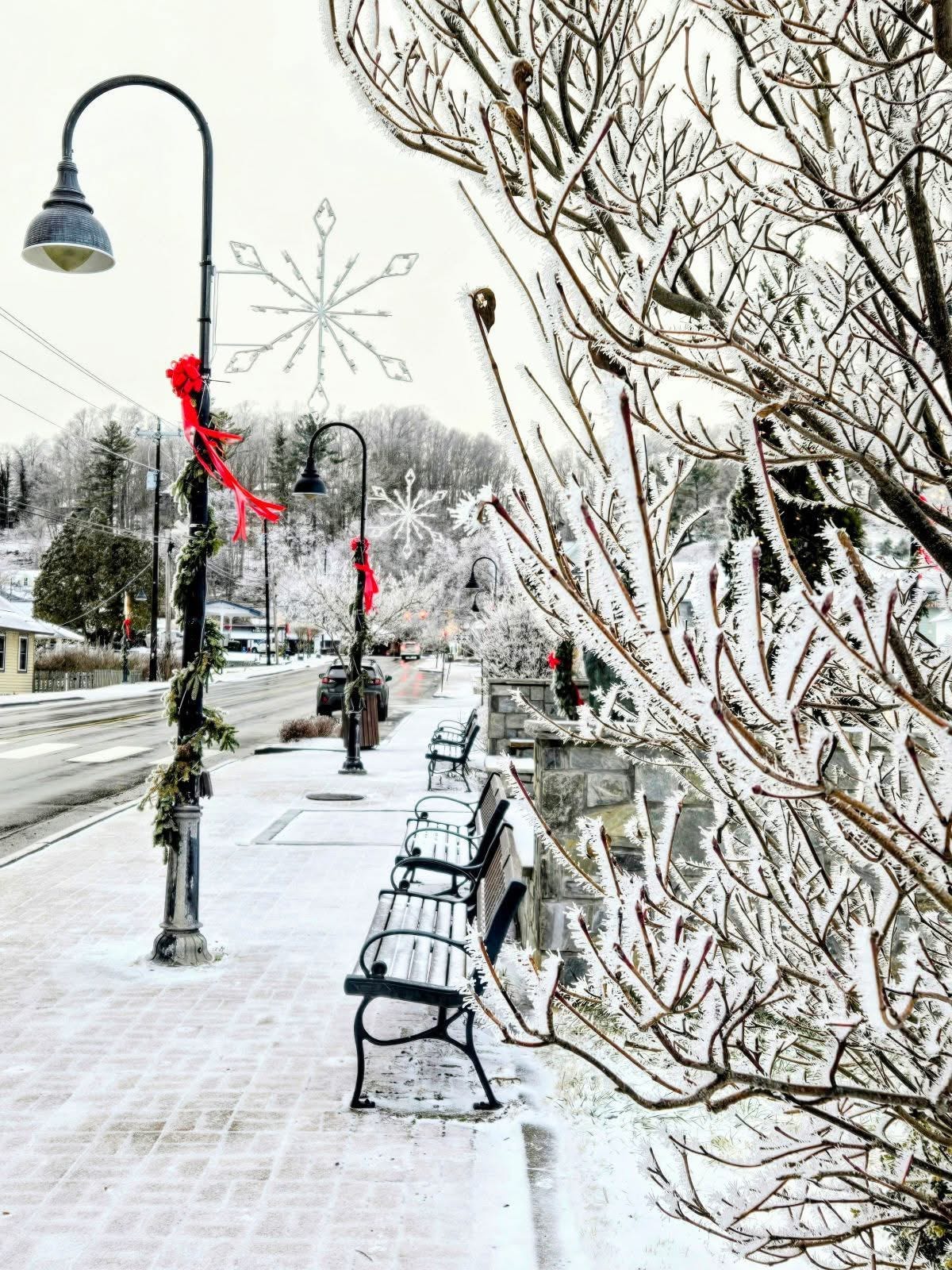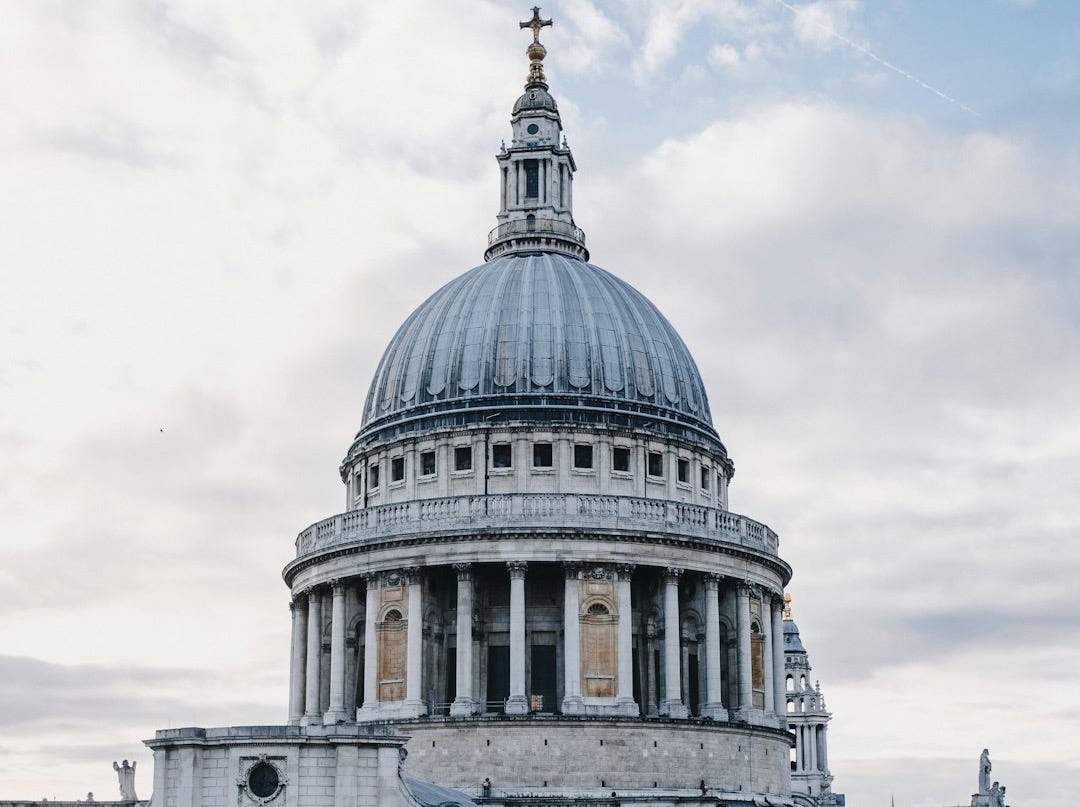At Christmastime, I find myself rummaging unhurriedly through old things tucked away. There’s something about this season that invites such a ritual—a quiet excavation of memories. I might stumble upon an old department store gift box here (and yes, I know—I’m an odd bird; I cherish those boxes. One day, I’ll share why, and perhaps you’ll understand). Or perhaps I’ll uncover yellowed papers there, like the scrawled lines of poetry my father once jotted in the margins of his books. One in particular is a navigational textbook from his officer academy days, the ink smeared and fragile. Yet, those lines marking a moment in my father’s life are like the ancient parchments of Qumran to me. These treasures speak to me of gifts—not just given, but preserved. And when I think of gifts, I think of poetry.
This year, I want to share two poems with you. The first is Dylan Thomas’ A Child’s Christmas in Wales, a work I read each year, trying my best to channel the Bard of Swansea (though, I assure you, without the slurred effects of single malt). The second is a poem set to music, one I call When Christ Was Born. But before I share these, let me invite you to step back with me to Christmas Day, 1626, in London—a city caught between despair and the desperate hope of survival.
The London of John Donne’s Christmas Day sermon was a city haunted by a death-obsessed enemy: the plague. Like its infected rodent hosts, this mysterious force of nature had prowled through the city with hellish power, taking lives indiscriminately, then retreating into an unknown lair, only to return. The Great Fire of 1666, decades later, would purge the rat-infested houses that nurtured this horror, but for now, the rich and poor, saints and sinners alike, were vulnerable. Those who gathered at Saint Paul’s Cathedral that Christmas morning in 1626 were survivors—but survivors who bore the scars of loss, and perhaps even the guilt of having lived.
The plague was not the only shadow hanging over the city. Failed harvests had left many hungry, while unemployment gnawed at men’s dignity. Some fled to the continent as mercenaries in wars they hardly understood, while others took to the sea, leaving behind wives whose beauty and youth were worn thin by hunger, fatigue, and the ceaseless work of keeping children alive. Above all loomed King Charles I, whose advocacy of the divine right of kings was stoking tensions that would soon erupt into civil war. For those who braved the chill that Christmas Day, the cathedral was no sanctuary of empty ritual. These were not mere traditionalists, stopping by church before feasts and fêtes. They came seeking truth—something that could penetrate the pain gripping their lives. And they came to hear a preacher whose own story of transformation mirrored the gospel he proclaimed.
John Donne had once been infamous for his wild ways, a poet of wit and worldly indulgence. By 1626, however, the man once dismissed as a libertine had become the most revered voice in London’s pulpits. Jack Donne had become Dr. John Donne—the Dean of Saint Paul’s Cathedral and a preacher whose every sermon bore the weight of his own redemption. Like the apostle whose name adorned the cathedral, Donne never forgot the glory of God’s grace. He preached, as Richard Baxter would famously write, “as a dying man to dying men.”
On that Christmas Day, Donne looked out over the gathered souls and pointed them to Christ, proclaiming:
“The whole life of Christ was a continual passion; others die martyrs, but Christ was born a martyr . . . His birth and his death were but one continual act, and his Christmas-day and his Good Friday are but the evening and morning of the one and the same day.”
Read that again: “The whole life of Christ was a continual passion.” What a staggering truth. The Incarnation at Bethlehem, His preaching in Galilee, His miracles in Jerusalem, His sacrificial death at Calvary, His resurrection, ascension, and present reign—all of it speaks of God’s unimaginable love. Christ’s life was a gift for the grieving, wealth for the poor, and hope for the hopeless. John Donne, though himself nearing death, poured out his strength to proclaim these unsearchable riches to his fellow sufferers.
And what of us? You may feel distant from the agonies of 1626 London, yet the human condition remains the same. We come to Christmas mingling joys and sorrows. For some, this season brings fresh wounds or the ache of scars not yet healed. For others, it is a time of laughter and reunion. But wherever we are, Christ meets us—not as a distant memory of an infant in a manger, but as the living Lord who is with us, for us, and before us. In the mystery of tragedy and the miracle of joy, we behold Him whose birth and death were but one continual act of redeeming love.
So, as you consider these reflections, may you know the reality of Christ, the Virgin-born Savior, who is Emmanuel—God with us.
When Christ Was Born
I composed, recorded the piano and voice in a Charlotte studio around 2010. The orchestration was added and mixed under Fred Schendel in Chattanooga later that year. This song is featured on the worship site Word to Worship and others. The sheet music is available at sites like this one. We thank the publications for including this humble work. You can find the lyrics and more information in the link here. The music follows.
A Child’s Christmas in Wales
Each year, I return to Dylan Thomas’ timeless work, savoring its lyricism, humor, and nostalgia. I laugh at the way Thomas describes a Christmas day in his childhood —the snowball fights on Mumbles Road, the presents, the “brittle aunts,” and snoring uncles, heaving like beached dolphins, or the brilliant sky on a cold night drawing a lad to the wonder behind it all.
My prayer is that the reality of the Incarnate, Crucified, Resurrected, and Reigning Christ, will fill your life this Christmas and all of the seasons of our lives.
“Whoever dwells under the defense of the Most High shall abide under the shadow of the Almighty. I will say unto the LORD, “You are my refuge and my stronghold, my God in whom I will trust” (Psalm 91:1, 2).
From the album Christmastime Again.







